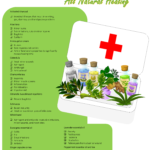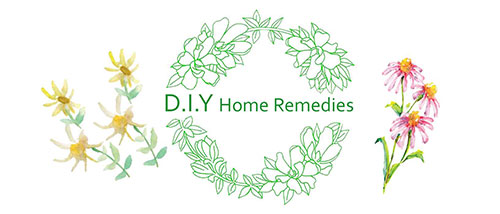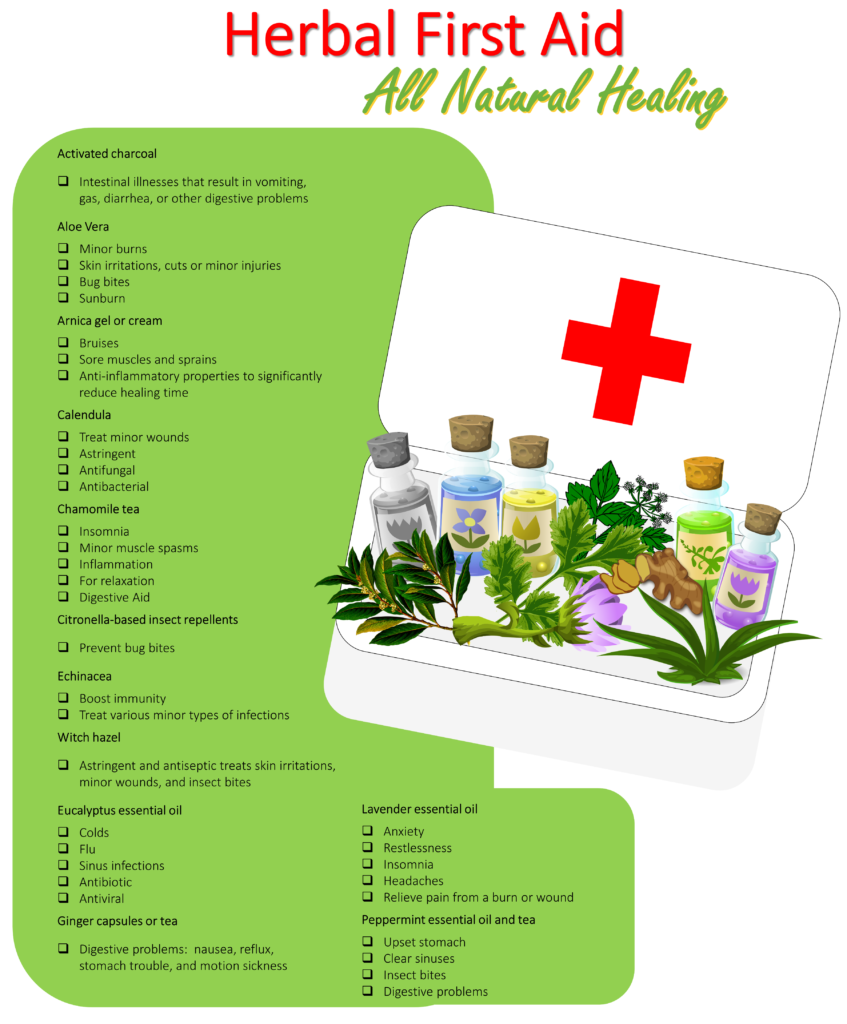 If you are interested in using herbal remedies as a part of everyday first aid treatments, read on! The following can be helpful in creating an herbal first aid kit for your home.
If you are interested in using herbal remedies as a part of everyday first aid treatments, read on! The following can be helpful in creating an herbal first aid kit for your home.
A herbal first aid kit will allow you to treat minor injuries, burns, and other non-serious maladies.
What You Need
Your kit should contain herbal and traditional remedies for things like cuts, rashes, burns, and minor ailments.
Preparing Your Herbal First Aid Kit
Choosing the Right Container
The first step in assembling your herbal first aid kit is selecting a container that’s both functional and durable. Your container should be:
- Waterproof: This keeps your herbs safe from moisture, ensuring they last longer and stay effective.
- Portable: Opt for something light but sturdy enough to handle bumps and jolts.
- Divided: Choose a container with compartments, which helps organize different herbs and remedies.
Consider using a small tackle box or a waterproof cosmetic bag. Both options allow for easy access and organization without sacrificing protection or portability.
Always include:
- bandages,
- tweezers,
- moleskin,
- rubbing alcohol
- hydrogen peroxide, which can be used in the event of blisters, splinters, cuts, and scrapes
Storage Tips
Once you’ve chosen your container, remember that how you store your herbs matters. You want them to stay potent and ready for use. Here are some tips to keep their natural magic alive:
- Cool and Dark Places: Store your kit in a place that avoids direct sunlight and extreme temperatures. Heat and light can degrade herbs over time.
- Airtight Containers: Small jars or zip-sealed bags work well for individual herbs. They keep moisture out and aromas in.
- Rotate Regularly: Check your herbs every few months. Replace any that seem faded or have lost their scent to maintain effectiveness.
By following these storage tips, you ensure that when you reach for your kit, your herbal remedies are fresh.
Essential Herbs for Your First Aid Kit
When it comes to first aid, nature has provided a bounty of remedies long before lab-made ointments and pills came along. A herbal first aid kit can be an effective and natural way to tend to minor injuries or ailments. Let’s explore some of the must-have herbs that can add a healing touch to your kit.
Aloe Vera
Aloe Vera is a household favorite when it comes to dealing with burns, cuts, and skin irritations. Its gel-like sap is like nature’s soothing balm. To apply it effectively:
- Trim an Aloe Leaf: Cut a leaf close to the plant’s base.
- Extract the Gel: Slice it open and scoop out the gel.
- Apply Directly: Dab it gently on the affected area as needed.
Aloe Vera is gentle yet powerful, which makes it perfect for soothing sunburns and speeding up the healing process of minor cuts.
Calendula
Known for its anti-inflammatory properties, calendula is another skin savior. Often seen as marigold’s medicinal cousin, it works wonders on minor wounds and skin issues:
- Soothing Salve: Infuse dried calendula flowers in oil and use it as a balm.
- Healing Washes: Steep the flowers to create a liquid wash for cuts.
With calendula, you’ll have a comforting herb ready to calm inflamed areas and reduce swelling.
Lavender
Lavender isn’t just about its heavenly scent; it’s a multi-tasker in your first aid kit. It’s known for calming effects and is great for insect bites and burns:
- Insect Bites: Apply a drop of lavender oil directly on the bite.
- Burn Treatment: Mix with a carrier oil and gently rub over burns.
For a good night’s sleep, place a sachet of dried lavender under your pillow.
Tea Tree Oil
Famed for its antiseptic qualities, tea tree oil is a must for any herbal toolkit. It helps combat cuts, scrapes, and even fungal infections:
- Antiseptic Wash: Dilute a few drops in water to clean wounds.
- Fungal Treatment: Mix with a carrier oil and apply to affected areas.
Tea tree oil acts like a natural disinfectant, keeping unwelcome germs at bay.
Peppermint
Peppermint is like nature’s Swiss army knife for headaches and tummy troubles, thanks to its impressive pain-relieving properties. Here’s how you can use it:
- Headaches: Rub diluted peppermint oil on your temples.
- Digestive Aid: Sip peppermint tea to calm stomach issues.
- Pain Relief: Use a peppermint oil rub on sore muscles.
Peppermint provides a refreshing zing while delivering relief. It’s as versatile as it is invigorating.
Eucalyptus essential oil
- Breath Easy: Eucalyptus oil can help clear sinuses and alleviate congestion. It’s known for improving respiratory issues when inhaled as steam or applied in diluted form.
- Natural Pain Relief: It can ease muscle and joint pain. With anti-inflammatory effects, it’s often used in massage oils to provide relief after a workout.
- Boosts Immunity: This oil is thought to stimulate the immune system. It contains compounds that may fend off pathogens.
- Skin Care: Acts as an antibacterial and antifungal agent. It’s sometimes used in skin creams to help with acne or minor wounds..
- Eases Stress: The calming scent can reduce stress and promote relaxation. It’s often used in aromatherapy for its soothing properties.
Essential Oils and Tinctures
Essential oils and tinctures are robust additions to any herbal first aid kit. Why include them? They pack a punch in small doses, making them invaluable for various situations:
- Versatility: Essential oils like lavender, tea tree, and eucalyptus can handle everything from cuts to bug bites. Their concentrated nature means you use very little for significant effect.
- Easy Application: Tinctures are incredibly convenient for internal use. A few drops can go a long way in relief and healing.
Make sure to include droppers for tinctures and ensure your oils are stored in dark glass bottles to maintain their potency. A handy tip is to use a strip of tape to label each one so you remember their uses at a glance.
Common Ailments and Herbal Remedies
Herbal remedies have been trusted for centuries to ease common ailments.
They can be a great addition to a first aid kit, offering natural solutions for everyday issues.
Cuts and Scrapes
Dealing with cuts and scrapes is a common occurrence. Fortunately, there are herbs that can help your skin heal faster. Here are a few you might consider:
- Aloe Vera: Known for its soothing properties, aloe vera can be applied directly to the skin to reduce irritation and promote healing.
- Calendula: Make a salve with calendula to help decrease inflammation and speed up the healing process. Simply apply it to the affected area.
- Yarrow: This herb can be used in a poultice to stop bleeding and disinfect wounds.
To use these herbs, clean the wound first. Then, apply the herb in the recommended form, whether it’s a gel, salve, or poultice. Cover with a bandage to keep the area clean.
Burns
Burns can be painful, but acting quickly can make a big difference. Here’s what you should do:
- Cool the burn with cool (not cold) water for at least 10 minutes.
- Apply Aloe Vera Gel: This can soothe the skin and help prevent infection.
- Use Lavender Essential Oil: Dilute it in a carrier oil and gently apply to the burn to help reduce pain and promote healing.
These steps, combined with the right herbs, can provide the relief you need.
Insect Bites and Allergies
Insect bites and mild allergic reactions can lead to annoying itchiness and swelling. Consider these herbal remedies:
- Plantain: Crush fresh plantain leaves and apply them directly to bites for fast relief from itching and inflammation.
- Tea Tree Oil: Acts as both an anti-inflammatory and antiseptic. Dilute it with a carrier oil before application.
- Citronella: Citronella oil keeps insects away without harsh chemicals. More preventative but useful to have with you if you’re in an area with a lot of insects!
These herbs can act like a natural shield, helping your skin recover quickly.
Muscle Aches and Pain
When muscle aches strike, herbs can offer a soothing solution. Here are some top picks:
- Arnica: Use an arnica gel or cream topically to alleviate pain and reduce swelling.
- Peppermint Oil: Massage diluted peppermint oil into the affected area for a cooling, numbing effect.
- Turmeric: Add turmeric to your meals or drink it as a tea for its anti-inflammatory benefits.
- Chamomile: The compounds can reduce inflammation.
These herbs can be a balm for sore muscles, making movement feel like a breeze.
Digestive Issues
Digestive troubles like nausea, cramps, and indigestion can be a real bother. Try these herbal remedies:
- Ginger: Sip on ginger tea to help settle the stomach and reduce nausea.
- Peppermint: Drinking peppermint tea can ease cramps and improve digestion.
- Fennel Seeds: Chew on fennel seeds to relieve bloating and indigestion.
- Activated Charcoal: It can relieve bloating and gas by binding gas-producing elements in foods. This makes it useful for those with occasional digestive discomfort.
- Chamomile tea: can help calm upset stomachs. It may relieve gas, indigestion, or nausea.
These herbs act like a gentle massage for your digestive system, helping things move smoothly again.
Incorporating these herbal remedies into your first aid kit is an empowering step in managing everyday ailments naturally. Whether it’s a scrape or upset stomach, herbs offer a gentle path to recovery.
Safety and Precautions
When creating and using an herbal first aid kit, it’s crucial to prioritize safety. While natural remedies can be effective, they aren’t without risks. Understanding potential allergies, interactions with medications, and when to consult professionals is important for safe and effective use.
Allergies and Sensitivities
Herbs, just like any other substances, can trigger allergic reactions. It’s smart to start with small amounts to test your body’s response.
Always check the labels of prepared herbal products for offending ingredients. Talk to others who have used the herb, or look up reliable resources for first-hand accounts. If you have seasonal allergies, be cautious with plants that may trigger them.
Interactions with Medications
Herbs are not as innocent as they seem; they can act like medications and may interfere with prescriptions you are taking. Knowing these potential interactions is key. Some herbs to watch out for include:
- St. John’s Wort: Can reduce the effectiveness of birth control pills and antidepressants.
- Ginkgo biloba: May increase bleeding risk if taken with blood thinners like warfarin.
- Garlic supplements: Might lower the effects of anti-HIV drugs.
If you’re on any medications, keep an updated list and compare it with the herbs you’re considering. Research each herb by reviewing reputable medical or herbal websites, or check with your pharmacist.
Consulting with Professionals
- Talk to your doctor: They can offer insights into how herbs might affect your current health condition.
- Consult a licensed herbalist: They can guide you in choosing the safest and most effective herbs.
- Seek advice from pharmacists: They can provide details on drug-herb interactions based on your medication profile.
An herbal first aid kit offers a natural, effective alternative for addressing everyday health concerns.
Herbal First Aid
Download this handy visual reference guide which you can pin in your kitchen for easy access!

